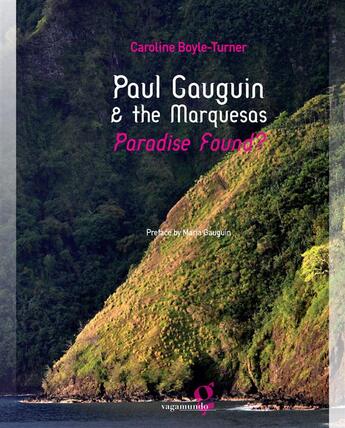Des idées de lecture pour ce début d'année !
Passionné(e) de lecture ? Inscrivez-vous
gratuitement ou connectez-vous pour rejoindre la
communauté et bénéficier de toutes les fonctionnalités du site !

While the work Gauguin produced in Tahiti has been extensively catalogued and analyzed over the past century, his last years in Atuona on the island of Hiva Oa in the Marquesas have received only glancing attention. The art and writing from this period nonetheless show a deep engagement with questions of traditional Marquesan beliefs, colonial and church authority and changing definitions of «exotic». Caroline Boyle-Turner focuses on the challenges Gauguin faced to intercede, invent, interpret or even ignore these complicated and often conflicting issues as he developed a powerful and poetic body of art.
Paul Gauguin and the Marquesas: Paradise Found? is based on detailed research that focuses on the writings and the works of Gauguin himself. His letters and especially his book Avant et après are quoted extensively - what better voice is there to understand his art than his own words? Yet Gauguin worked hard to create a not always accurate myth of himself as both a poet and a savage. The author of this book untangles some of these myths by burrowing into colonial records in France, the Musée de Tahiti et des îles and the Société des Études Océaniennes (both in Papeete) as well as the resources of the Musée du quai Branly, Musée d'Orsay Documentation Center, the Bibliothèque Nationale and the Service Protestant de Mission DEFAP in Paris. The author's discussions with Gauguin's Marquesan descendants, archeologists, anthropologists, botanists and historians who specialize in South Pacific studies broaden the understanding of Gauguin's surroundings, both real and imagined.
Il n'y a pas encore de discussion sur ce livre
Soyez le premier à en lancer une !

Des idées de lecture pour ce début d'année !

Si certaines sont impressionnantes et effrayantes, d'autres sont drôles et rassurantes !

A gagner : la BD jeunesse adaptée du classique de Mary Shelley !

Caraïbes, 1492. "Ce sont ceux qui ont posé le pied sur ces terres qui ont amené la barbarie, la torture, la cruauté, la destruction des lieux, la mort..."